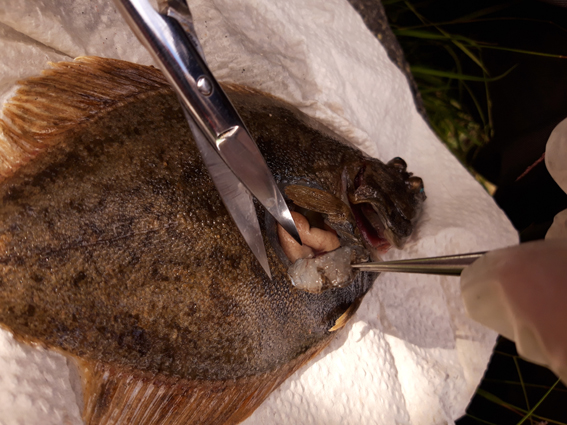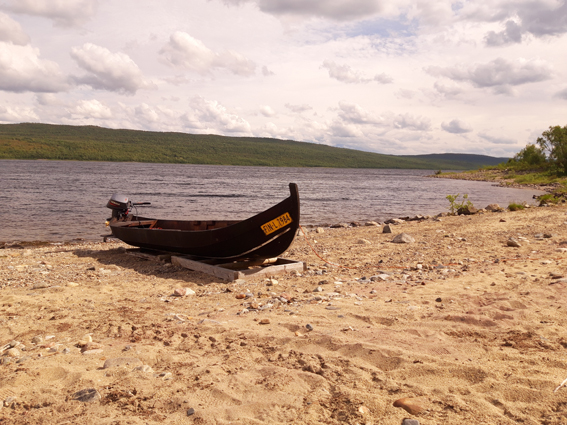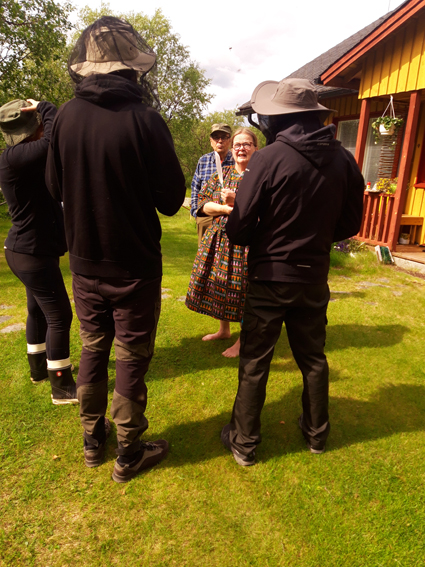- Fotogalerie:
- Foto:
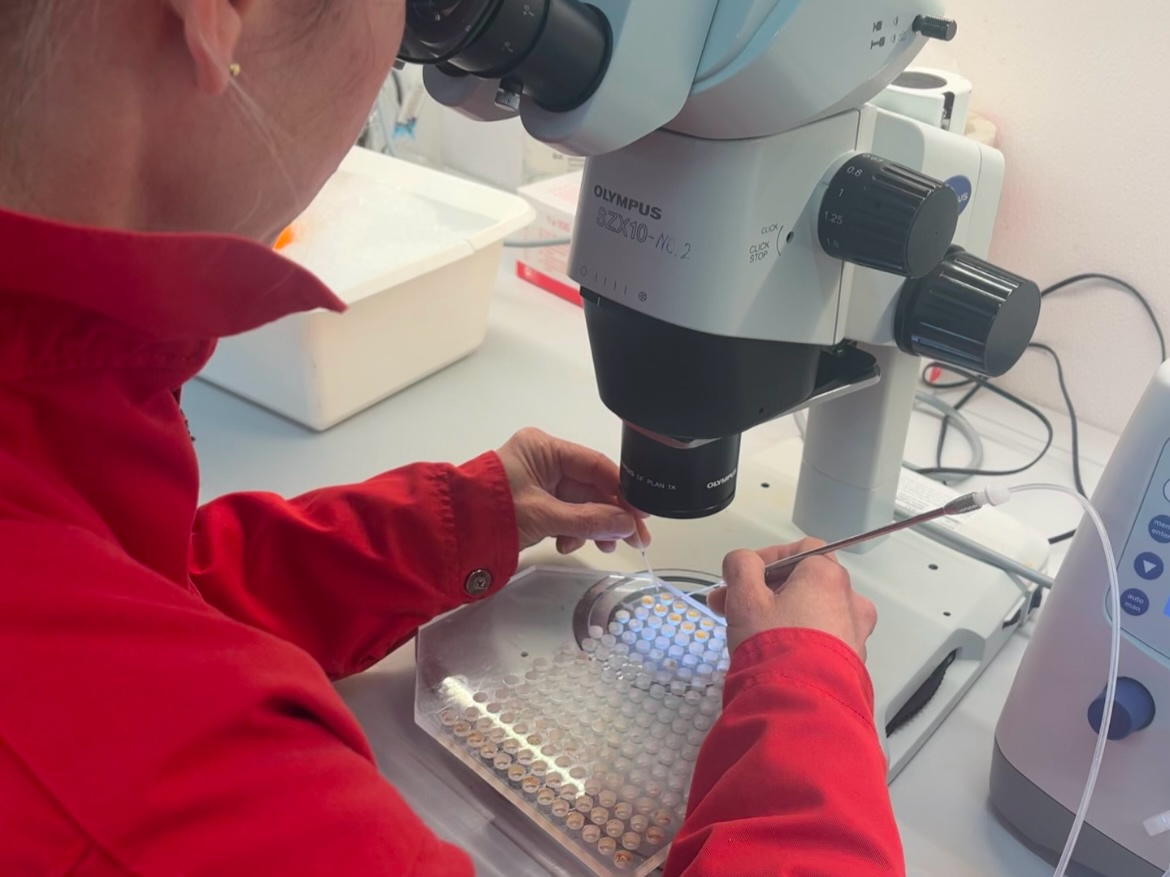
- Foto:
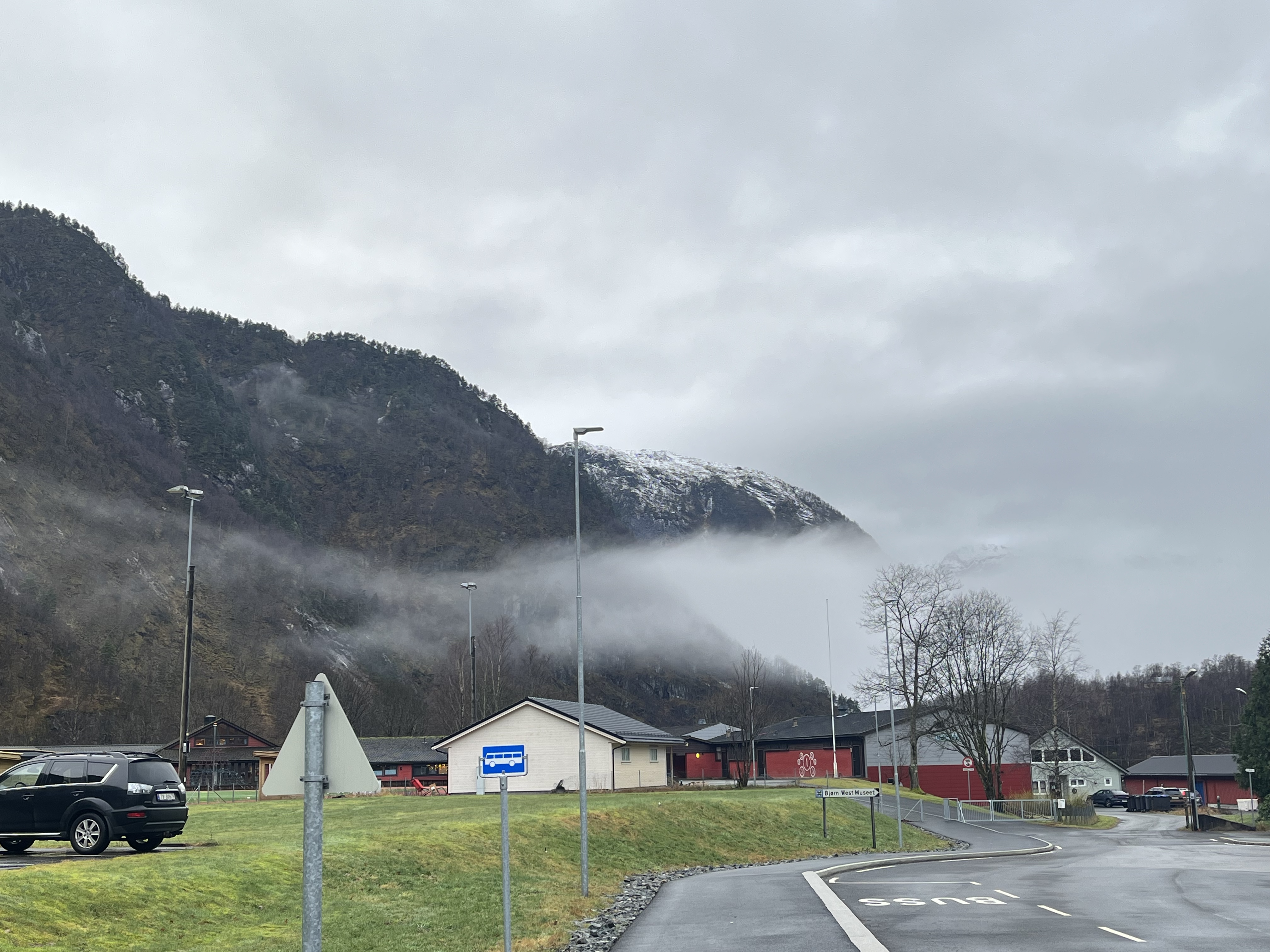
From 2ndDecember to the 20th December 2024, I conducted a business trip to the Institute of Marine Research (IMR, Havforskningsinstituttet) in Bergen, Norway. The purpose of this trip was to study the effects of various wavelengths of visible light on the early embryonic development of Atlantic salmon.
IMR provided access to extensive Atlantic salmon resources, along with a well-equipped research environment. The supportive and collaborative colleagues further enriched the experience and facilitated the experiment.
On 27.-30.5. 2024 FROV JU staff T. Randák, P. Lepič, and M. Šindler visited long-term monitored sites in the Belá river basin in Slovakia as part of the LIFE "Living Rivers" project. Several coordination meetings occurred with subjects and colleagues involved in the project solution during the visit. Issues of removing or rebuilding migration barriers on the stream were discussed, current fisheries management was consulted, and autumn activities related to the continuation of the project were planned. There was also a visit to selected stream localities connected with recapturing fish tagged last year.
Through the Erasmus+ mobility funding program, I engaged in several training activities at Aquaforum, School of Agricultural, Forest, and Food Sciences at Bern University of Applied Sciences, Switzerland, and at Aquaforum's partners in Switzerland.
I participated in gene expression analysis procedures for fish. I enhanced my fish and shrimp farming expertise within land-based aquaculture facilities in Switzerland, including Swiss Lachs AG in Lostallo, LocalFish AG in Rafz, and SwissShrimp GmbH in Rheinfelden. Additionally, I expanded my knowledge of insect farming for animal feed at Eawag: Swiss Federal Institute of Aquatic Science and Technology in Dübendorf, and of fish trials at the experimental fish facility at the Research Institute of Organic Agriculture FiBL in Frick.
On November 24, 2025, a one-day field trip to Austria was held with third-year students from the Vodňany Fisheries School, compensating for the September field trip that could not take place due to a technical fault with the bus. A total of three different sites were visited in Austria. These included a unique fish skin processing manufactory, a public aquarium, and a Biofisch store offering tastings of organic aquaculture products. The excursion for 34 students and 2 teachers was organized and personally accompanied by Dr. Ján Regenda. The event was financially supported by the Living Treasures project, ATCZ00180, Living Treasures of Streams and Pools, Interreg Austria-Czechia 2021-2027 program.
From September 22 to 24, 2025, a field trip was organized for third-year students of the Vodňany Fisheries School to Austria. A total of seven different sites were visited, mainly in Austria. These included partner schools specializing in fisheries and water management, an environmental center, and a traditional fish farm. Due to a technical fault with the bus, we were unable to complete part of the planned program. The visit to the partner institution BOKU in Vienna was particularly inspiring, where we learned more about the issues of sediments and material transport in rivers. The excursion for 30 students and 2 teachers was organized and personally accompanied by Dr. Ján Regenda on behalf of FFPW SBU. The event was financially supported by the Living Treasures project, ATCZ00180, Living Treasures of Streams and Pools, Interreg Austria-Czechia 2021-2027 program.
The 35th Annual Meeting of the Society of Environmental Toxicology and Chemistry (SETAC) Europe was held in Vienna, Austria, from May 11 to 15, 2025. This conference provided a valuable platform for environmental scientists to present and discuss recent developments in the field. Vladimír Žlábek and Ganna Fedorova contributed with two poster presentations titled “Crayfish Behavior in the Shadow of Bioaccumulation of Ionizable and Neutral Pharmaceuticals” and “From Brain to Sperm: How Psychoactive Drugs Can Affect Fish Reproduction.” In addition to presenting research, Prof. Žlábek also served as a session chair, further contributing to the scientific program.
We were pleased to participate in discussions on pressing environmental issues, reconnect with international collaborators, and establish new professional contacts. We gratefully acknowledge the Czech Science Foundation and CENAKVA for their financial support of this trip.
On 14th March 2025 we participated in the fourth Workshop within the bilateral project BYCZ-SPF00088 Fish Welfare Education - Knowledge Transfer and Innovation in Fisheries Science, which is supported by the Small Project Fund of the Interreg Bavaria-Czech Republic Programme. The workshop programme was this time focused on the issue of fish welfare in pre-spawning preparation and selection of broodstock. The fish on which the issues were demonstrated was the grayling (Thymallus thymallus), which usually spawns in mid-April. The Czech side presented suitable methods for assessing the quality of gametes under hatchery operating conditions. In the afternoon, there was a practical demonstration of manipulation of brood fish, their sexing and assessment of their readiness for spawning.

On August 25, 2025, I made a short, one-day visit to the Lindbergmühle farm in Bavaria, where we are implementing the bilateral project BYCZ-SPF00088 Fish Welfare Education – Knowledge Transfer and Innovation in Fisheries Sciences, which is supported by the Small Projects Fund of the Interreg Bavaria-Czechia program. The purpose of our trip was to reflect on our cooperation on the project so far and to prepare further joint activities for autumn 2025. The participants also visited the Lindbergmühle fish farm and discussed fish welfare issues in relation to the various fish farming technologies available on the farm. Emphasis was placed on the impact of fish-eating predators on broodstock rheophilic fish in ponds.
On 21 May 2024 we participated in the first Workshop within the new bilateral project BYCZ-SPF00088 Fish Welfare Education - Přenos znalostí a inovace v rybářských vědních oborech, which is supported by the Small Projects Fund of the Interreg Bayern-Czech Republic programme. The programme of the workshop was focused on the anaesthesia of salmonids (BY partner) and the use of fish body photography for fish quality assessment (CZ partner). The introductory theoretical part was followed by a practical demonstration of both discussed activities.
Ing. Ján Regenda, Ph.D., MSc. Niksirat Hashjin Hamid, Ph.D., MSc. Thora Lieke, Dr. rer. nat.

On 9th November 2024 I attended the meeting after the preparation of the project application for the creation of ESFRI in the field of livestock breeding. Based on the meeting, a consortium called GenoPHEnix – a research infrastructure to deliver a consolidated vision for farmed animal science in Europe was created. The goal is to submit a project proposal where the faculty will be involved in data management activities, application of modern technologies or analysis of the influence and impact of infrastructures on the environment.
This is a strategic project that would allow the faculty involved in other EU challenges to offer paid services in the future.
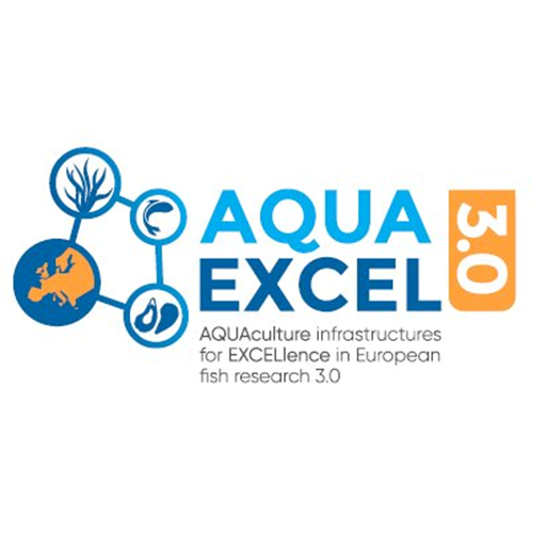
From 20–24 October 2025, I participated in a professional training programme organized by CZELO, focused on international higher education. The aim of the training was to strengthen the professional competencies of all seven participants and to provide up-to-date information on the development of European policies in the field of higher education, particularly in relation to the European University Alliances and the potential direction of the Erasmus+ programme after 2027.
The programme also included meetings with representatives of other national liaison offices within the IGLO network, which allowed us to exchange experience, establish new professional contacts, and gain insights into current trends in international cooperation. The training further comprised visits to local universities and educational institutions.
A key outcome of the stay was the establishment of contact with Vrije Universiteit Brussel, which expressed interest in long-term cooperation. In the upcoming period, we will therefore initiate the process of concluding an inter-institutional agreement within the Erasmus+ programme.
- Fotogalerie:
- Foto:
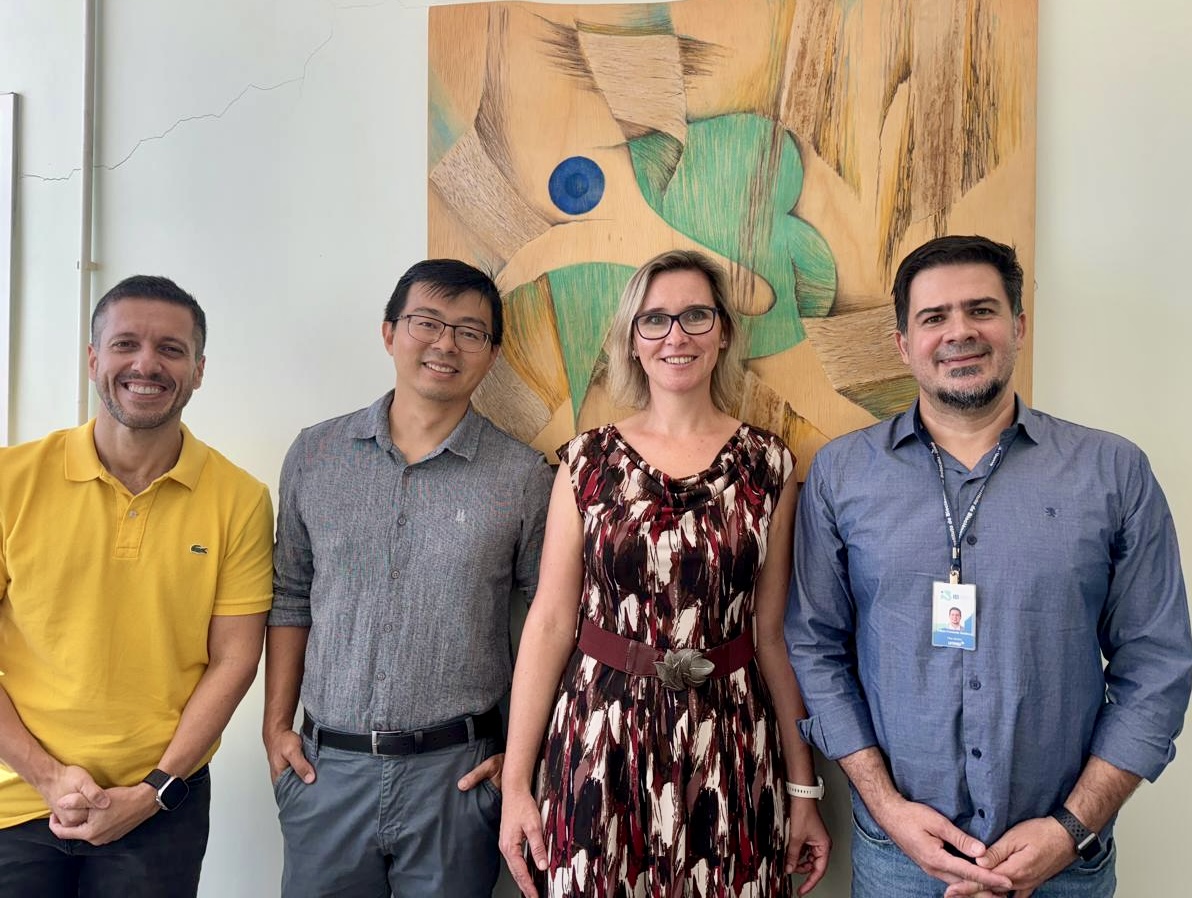
On 20 – 24 May 2024 I visited the São Paulo State University (UNESP), as part of the ERASMUS+ mobility and with support from the University of South Bohemia. I met staff from three Faculties (the coordinators of international relations) and a colleague from the University Department of International Relations. We exchanged experience and good practice, I was shown around the faculties, and we also discussed possible contracts between our faculties or between universities.
As a employee of the University of South Bohemia’s part of the Faculty of Fisheries and Protection of Waters, Ismael Soto had the privilege of attending and presenting at the International Conference on Aquatic Invasive Species (ICAIS) from May 12 – 16, 2024 in Halifax, Nova Scotia, Canada. This conference represents a cornerstone for global dialogue on the ecological, social, and economic impacts of aquatic invasive species. My participation was represented on two main topics.
- The Faunal Ponto-Caspianization of Western European Waterways: I delved into the spread of Ponto-Caspian species into Western European waterways. I discussed the vectors of this invasion, its ecological ramifications, and the necessary strategies for management and mitigation.
- DOSI Schema: Taming the Terminological Tempest: My second topic addressed the often-overlooked issue of inconsistent terminology in our field. The DOSI schema, a framework proposes a standardized terminological approach to enhance clarity and facilitate better communication among researchers and policymakers.
Members of the Laboratory of Physiology of Reproduction, Sergii Boryshpolets, Borys Dzyuba, and Vitaliy Kholodnyy, recently undertook a field expedition to Finland to work with unique populations of European flounder (June, 30 - July, 11, 2024). This expedition was made possible thanks to the support of Erasmus+ and the Faculty of Fisheries and Protection of Waters.
The primary objective of this expedition was to study the European flounder in freshwater lakes and estuaries in North Finland and Norway. Our focus was on understanding the reproductive mechanisms of this species, particularly their adaptation to reproduce in different salinities, which sets the European flounder apart from many other marine species. There is intriguing information suggesting that some populations of flounder in Lapland, particularly in North Finland, might reside in freshwater lakes and even reproduce there. This presents a fascinating and challenging issue for scientific investigation related to the adaptability and functioning of gametes in different environments.
During the expedition, our team engaged in several key activities, including an overview of the local environment, sample collection, and ecological data recording in the fish's natural habitat. Additionally, we had the opportunity to meet with local fishermen, discussing the unique biology and populations of the flounders inhabiting different localities and gaining valuable insights into our research. An essential aspect of this expedition was networking with fellow researchers and experts in marine biology and conservation. This allowed us to engage in hands-on research and establish professional relationships crucial for future collaborations.
Through the Erasmus+ mobility funding program, I participated in a visit to the University of Jyväskylä from May 6th to 10th, 2024. My primary objective was to enhance my knowledge of stable isotope analysis. Additionally, I had productive discussions with colleagues regarding compound-specific isotope analysis.
Hung Quang Tran
- Fotogalerie:
- Foto:
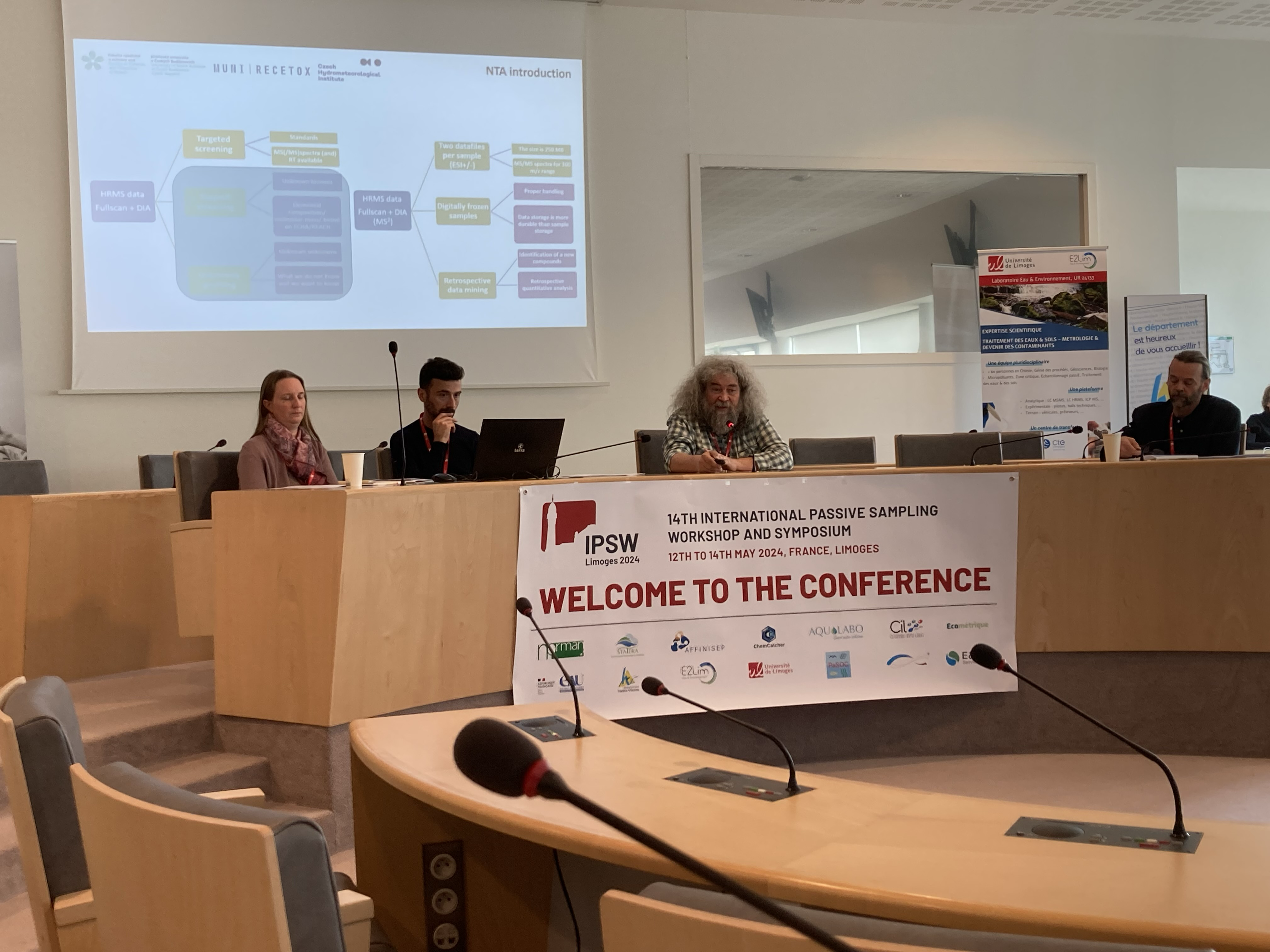
- Foto:
From May 12 to 14, the IPSW 2024 (14th International Passive Sampling Symphosium and Workshop) took place in Limoges, France. It was attended by members of the Laboratory of Environmental Chemistry and Biochemistry, Pavla Fialová and Roman Grabic, who presented three lectures. The aim of the conference was to bring together scientists to share their knowledge about the use of passive sampling approaches in wide application range from fundamental research to regulatory monitoring.
Erasmus Training at the Fisheries Advisory Service of the Lower Bavaria District
From October 20th to 24th, my visit to Lower Bavaria—funded through an Erasmus+ training mobility—was an exceptionally enriching experience on both a professional and personal level. The combination of hands-on insights into river restoration and species conservation projects, along with close cooperation with the regional Fisheries Advisory Service, and the quiet, grounding moments in the Bavarian Forest/Šumava, reminded me of the power of genuine exchange between science and practice. The lively discussions, the truly bilateral knowledge transfer, and the opportunity to share my own research deepened my understanding of current challenges in fisheries and aquaculture, while highlighting how much stronger solutions become when different areas of expertise come together. This stay has motivated and encouraged me to continue building such collaborations—because it is exactly at this intersection of research, practical management, and environmental stewardship that meaningful progress for sustainable aquaculture and ecosystem protection is made.
From the 21st to 26th of August 2024, Linan Gao, Joao Ferreira, and Mohammad Riaz Morshed visited Leibniz University in Hannover, Germany, to take part in summer school in cryobiology arranged by IMP (Institute of Multiphase Processes), under the Cryostore Project funded by the European Union. The summer school focused on cryobiology and its different applications for the future conservation of livestock biodiversity. It included lectures and hands-on workshops on different topics, such as cryobiology, cryodamage, communication science, cryo-microscopy, and cryopreservation techniques. Renowned professors and researchers from different countries lectured on current cryobiology and its application. We got the opportunity to see the latest cryobiology technology. The GAJU and Cryostore Projects are acknowledged for financially supporting the business trips.
From September 29 to October 2, 2025, a four-day excursion was held for first-year students of the follow-up master's program as part of the courses "Salmonid Fish Farming" and "Pond Aquaculture." A total of 16 different facilities, farms, organizations, and locations in the Czech Republic and Bavaria were visited. These included various types of operations, primarily fish hatcheries, flow-through and recirculation farms breeding fry and/or marketable salmonids and sturgeons, research organizations, cage farms, pond farms, water structures, fish processing plants, fish and fish products, etc. The program also included tasting fish specialties.
The excursion was made possible thanks to financial support from the Sumava Fish Jewels project, BYCZ01-020 Living Jewels Beneath the Water Surface of Šumava, and teaching resources from ÚAOV and VÚRH. Thank you for your support!
Institution: Hellenic Centre for Marine Research (HCMR), Crete, Greece
Duration: 4th May – 3rd June 2025
Supervisor: Prof. Pantelis Katharios
Funding: AQUAEXCEL TNA Grant (PID35187)
From 4th May to 3rd June 2025, I undertook a research internship at the Hellenic Centre for Marine Research (HCMR), Crete, Greece, under the supervision of Prof. Pantelis Katharios. The internship was funded by the AQUAEXCEL TNA grant (PID35187).
The primary objectives were to evaluate the antibacterial properties of fish-pond microbiota against a broad range of fish pathogens and to investigate their genomic characteristics. During the internship, seven fish-pond bacterial isolates were tested for their inhibitory effects against 15 fish pathogens belonging to the genera Aeromonas, Vibrio, and Edwardsiella.Subsequently, the whole genomes of the isolates were sequenced, annotated, and characterized.
This experience significantly enhanced my expertise in antibacterial assays, bacterial whole-genome analysis, and bioinformatics, as well as strengthened my interpersonal and collaborative skills. I am sincerely grateful to the AQUAEXCEL TNA program for supporting this valuable training and research opportunity.







